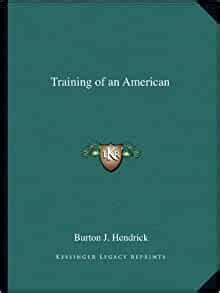A Quote by Charles Evans Hughes
In a number of cases dissenting opinions have in time become the law.
Related Quotes
In our counterterrorism cases and our counterintelligence cases, we can issue all kinds of - of layers of approval in the FBI, a national security letter to find out the subscriber to a particular telephone number and to find out what numbers that telephone number was in contact with. Not the content of those communications, but just the connection.
Let's put it in perspective at the United States Supreme Court, which hears maybe 60 cases a year, most of the cases are resolved without much dispute. The 10 or 15 that are controversial we all know about, and we hear about. The federal courts hear just a tiny sliver of the cases that go to court in this country. Most of the cases are in the state courts. And most legal issues never go to court. So, the legal system is actually not in jeopardy. At the same time, access to law is in jeopardy.
The successful politician owes his power to the fact that he moves within the accepted framework of thought, that he thinks and talks conventionally. It would be almost a contradiction in terms for a politician to be a leader in the field of ideas. His task in a democracy is to find out what the opinions held by the largest number are, not to give currency to new opinions which may become the majority view in some distant future.































